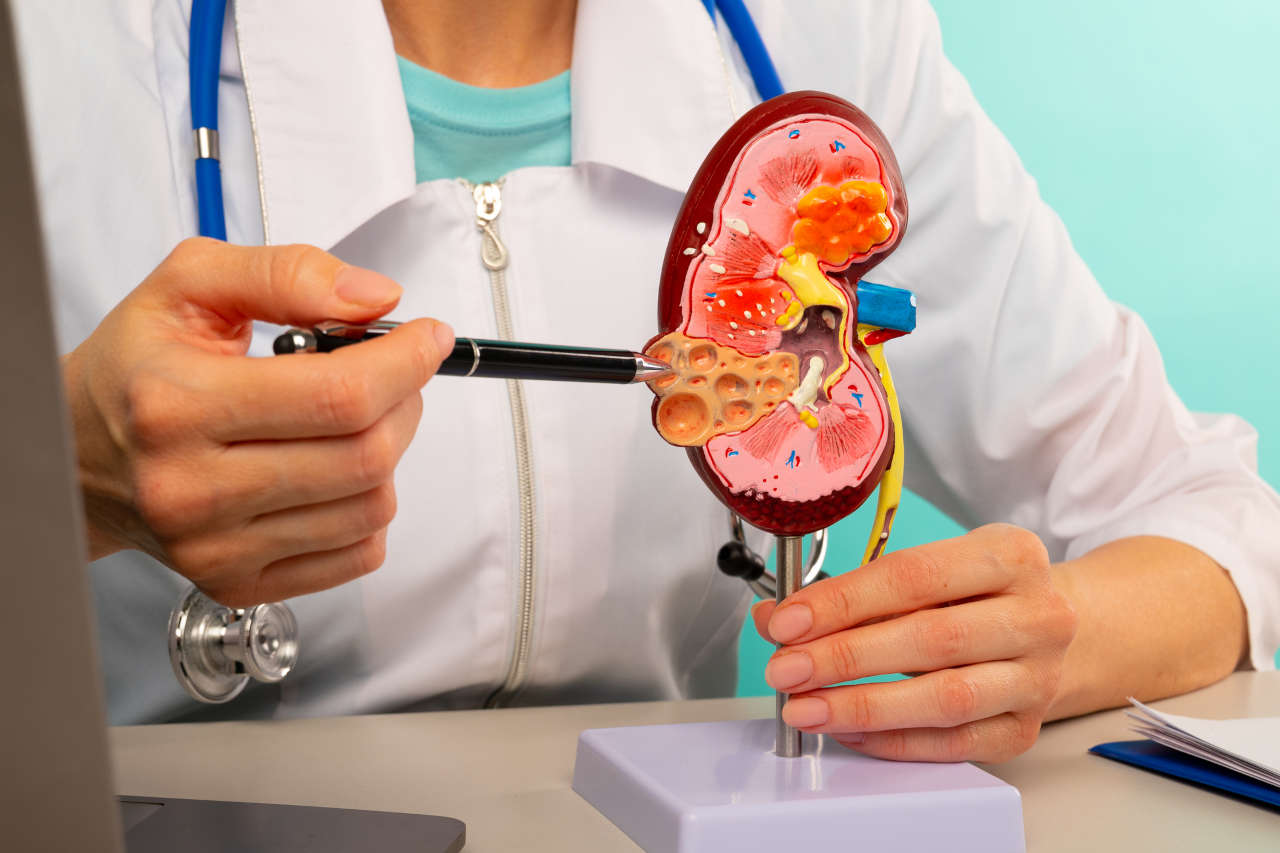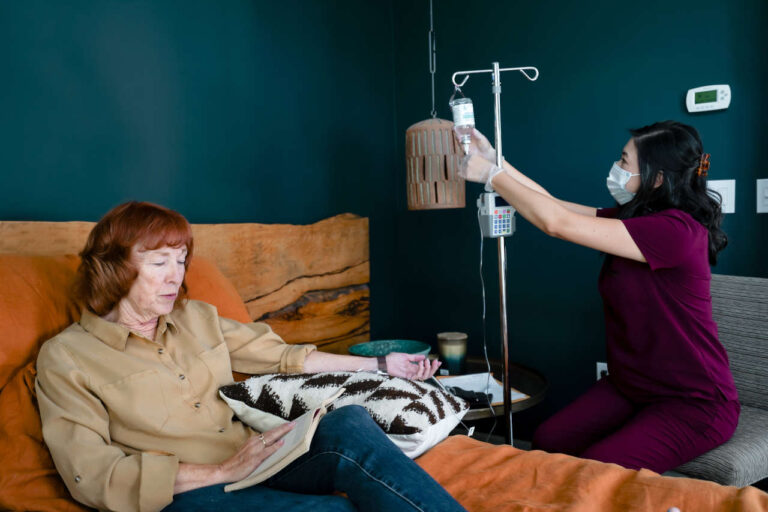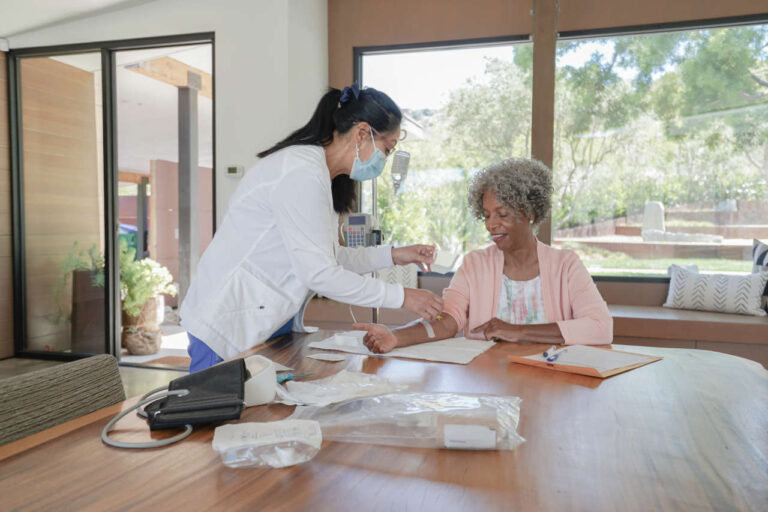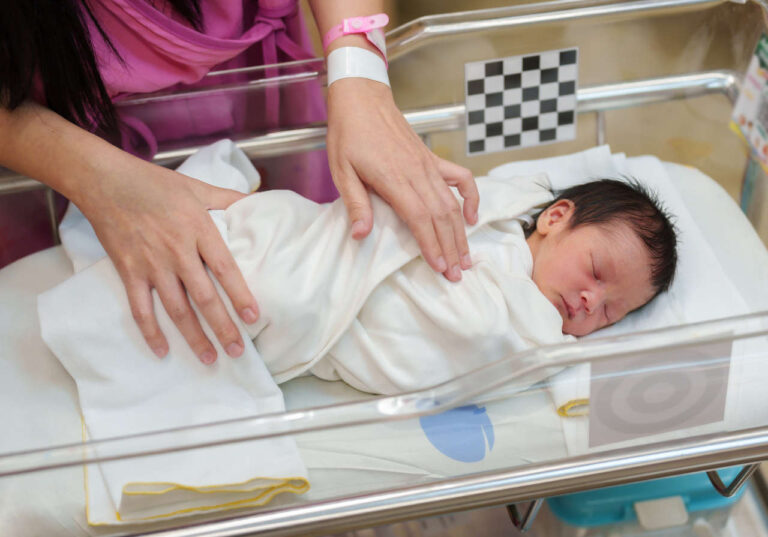
Solid organ transplantation is a surgical procedure that replaces a person’s failing organ with a healthy one from a donor. It is a vital procedure that can benefit people who are suffering from severe organ failure.
Ask About IVIG Home Infusion
However, there are several challenges of solid organ transplantation. One challenge that patients often face is organ rejection. This happens when the body’s immune system misidentifies the new organ as a foreign, harmful object and attacks it. To prevent this, doctors use immunosuppressant drugs that weaken their immune system, but this will also increase the risk of infection [1].
Intravenous Immunoglobulin (IVIG) can help prevent transplant rejection. In this article, we will discuss IVIG and how it can enhance your chances of successful organ transplantation.
What Is IVIG?
Intravenous Immunoglobulin (IVIG) is a treatment made from the plasma of thousands of donors, containing many different antibodies. IVIG can help you fight infections if you have a weakened immune system. It is used in various immune system disorders and inflammatory diseases like Kawasaki disease, lupus, and guillain-barre syndrome.
There are many benefits of IVIG for solid organ transplantation. IVIG can calm an overactive immune system, thus reducing the chance of organ rejection. Before and after surgery, you must take immunosuppressant drugs, which weakens your immune system. This makes you more prone to infections, and IVIG can help you fight these infections. In short, IVIG can make your transplant more successful and keep you healthier.
What Are the Benefits of IVIG for Solid Organ Transplantation?
Intravenous Immunoglobulin (IVIG) is a good supporting treatment option for solid organ transplantation. It can play a vital role in both the preparation of an organ transplant and management of the potential complications that come after the transplant. Below, we will discuss how IVIG can help you in different stages of organ transplantation.
Role of IVIG Before Organ Transplantation

Before solid organ transplantation, doctors primarily use intravenous immunoglobulin (IVIG) for desensitization. Desensitization is a medical process that reduces antibodies in a patient’s blood that could harm a transplanted organ. You need to go through this process before organ transplantation if you have high levels of alloantibodies, which are antibodies that target transplanted organs. The higher the levels of alloantibodies present in your blood, the longer you have to wait before conducting surgery.
In the past two decades, doctors have used IVIG as a tool for the desensitization process in kidney transplantation. It can reduce the alloantibody levels in your body, which can increase your chance of a successful organ transplant [2][5]. For the desensitization process, doctors use IVIG alone or in combination with other treatments like steroids, plasma exchange, and immunosuppressive drugs like rituximab [3][5].
Most of the documented success of IVIG in the desensitization process has been in kidney transplants. According to one study, there is a lack of evidence to support the use of IVIG for the desensitization process in heart, lung, and liver transplants [5]. However, a recent Canadian study suggested that the combined use of IVIG, plasma exchange, anti-thymocyte globulin, and mycophenolic acid can benefit patients who have high levels of alloantibodies during lung transplants [4].
Get IVIG Copay Assistance
Role of IVIG After Organ Transplantation
After the organ transplantation, the primary concern is to prevent organ rejection. You may experience organ rejection within the first few months or after a long time. The rejection may be caused by cells or antibodies. If antibodies cause the rejection, then it is called antibody-mediated rejection (AMR). If doctors suspect AMR, they will implement a treatment regimen to suppress your immune system and save the transplanted organ.
Various studies over the past decades have shown that using IVIG in combination with drugs like rituximab can lower your risk of organ rejection in kidney transplants [7][8]. It is also beneficial in treating AMR in other transplants like lung, heart, and liver [9].
There is another notable complication that comes after your organ transplant. Many patients experience low levels of immunoglobulins due to the use of immunosuppressants [10]. This can make you more prone to infections. In this case, IVIG therapy can help you replenish immunoglobulin levels and protect you against infections. According to one study, the usage of IVIG can reduce your risk of getting infections after an organ transplant [11].
The Bottom Line
For over a decade, IVIG has been very useful in solid organ transplantation. It can ensure the long-term survival of a transplant recipient by lowering the alloantibody levels, preventing AMR (antibody-mediated rejection), and managing infections. However, we still need more research to understand the full potential of IVIG for solid organ transplantation.
REFERENCES:
- Black, C. K., Termanini, K. M., Aguirre, O., Hawksworth, J. S., & Sosin, M. (2018). Solid organ transplantation in the 21st century. Annals of Translational Medicine, 6(20), 409. https://doi.org/10.21037/atm.2018.09.68
- Sethi, S., Choi, J., Toyoda, M., Vo, A., Peng, A., & Jordan, S. C. (2017). Desensitization: overcoming the immunologic barriers to transplantation. Journal of Immunology Research, 2017, 1–11. https://doi.org/10.1155/2017/6804678
- Guo, Z., Zhao, D., Sa, R., Wang, L., Li, S., Zhao, G., Zhu, L., & Chen, G. (2023). A modified perioperative regimen for deceased donor kidney transplantation in presensitized recipients without prior desensitization therapy. Frontiers in Immunology, 14. https://doi.org/10.3389/fimmu.2023.1223567
- Tinckam, K., Keshavjee, S., Chaparro, C., Barth, D., Azad, S., Binnie, M., Chow, C., De Perrot, M., Pierre, A., Waddell, T., Yasufuku, K., Cypel, M., & Singer, L. (2015). Survival in sensitized lung transplant recipients with perioperative desensitization. American Journal of Transplantation, 15(2), 417–426. https://doi.org/10.1111/ajt.13076
- Shehata, N., Palda, V. A., Meyer, R. M., Blydt-Hansen, T. D., Campbell, P., Cardella, C., Martin, S., Nickerson, P., Peltekian, K., Ross, H., Waddell, T. K., West, L., Anderson, D., Freedman, J., & Hume, H. (2009). The use of Immunoglobulin therapy for Patients undergoing solid Organ Transplantation: An Evidence-Based Practice Guideline. Transfusion Medicine Reviews, 24, S7–S27. https://doi.org/10.1016/j.tmrv.2009.09.010
- Jordan, S. C., Tyan, D., Stablein, D., McIntosh, M., Rose, S., Vo, A., Toyoda, M., Davis, C., Shapiro, R., Adey, D., Milliner, D., Graff, R., Steiner, R., Ciancio, G., Sahney, S., & Light, J. (2004). Evaluation of Intravenous Immunoglobulin as an Agent to Lower Allosensitization and Improve Transplantation in Highly Sensitized Adult Patients with End-Stage Renal Disease. Journal of the American Society of Nephrology, 15(12), 3256–3262. https://doi.org/10.1097/01.asn.0000145878.92906.9f
- Lachmann, N., Duerr, M., Schönemann, C., Pruß, A., Budde, K., & Waiser, J. (2017). Treatment of Antibody-Mediated Renal Allograft Rejection: Improving step by step. Journal of Immunology Research, 2017, 1–9. https://doi.org/10.1155/2017/6872046
- Takemoto, S. K., Zeevi, A., Feng, S., Colvin, R. B., Jordan, S., Kobashigawa, J., Kupiec-Weglinski, J., Matas, A., Montgomery, R. A., Nickerson, P., Platt, J. L., Rabb, H., Thistlethwaite, R., Tyan, D., & Delmonico, F. L. (2004). National Conference to Assess Antibody-Mediated Rejection in Solid Organ Transplantation. American Journal of Transplantation, 4(7), 1033–1041. https://doi.org/10.1111/j.1600-6143.2004.00500.x
- Ig Governance – Criteria for the clinical use of immunoglobulin in Australia. (n.d.). https://www.criteria.blood.gov.au/MedicalCondition/View/2484
- Works CitedPerez, Elena E., et al. “Update on the Use of Immunoglobulin in Human Disease: A Review of Evidence.” Journal of Allergy and Clinical Immunology, vol. 139, no. 3, Mar. 2017, pp. S1–S46, www.aaaai.org/Aaaai/media/MediaLibrary/PDF%20Documents/Practice%20and%20Parameters/IVIG-March-2017.pdf, https://doi.org/10.1016/j.jaci.2016.09.023.
- Carbone, J., Fernandez-Yañez, J., Montanchez, J., Zatarain, E., Navarro, J., Rodriguez-Ferrero, M., Anaya, F., Salcedo, M., Fernandez, A., Muñoz, P., Valerio, M., & Sarmiento, E. (2018). Intravenous Immunoglobulin Replacement Therapy in Solid Organ Transplantation with Severe Infections and Secondary Antibody Deficiency. Transplantation, 102(Supplement 7), S84. https://doi.org/10.1097/01.tp.0000542670.27264.65













